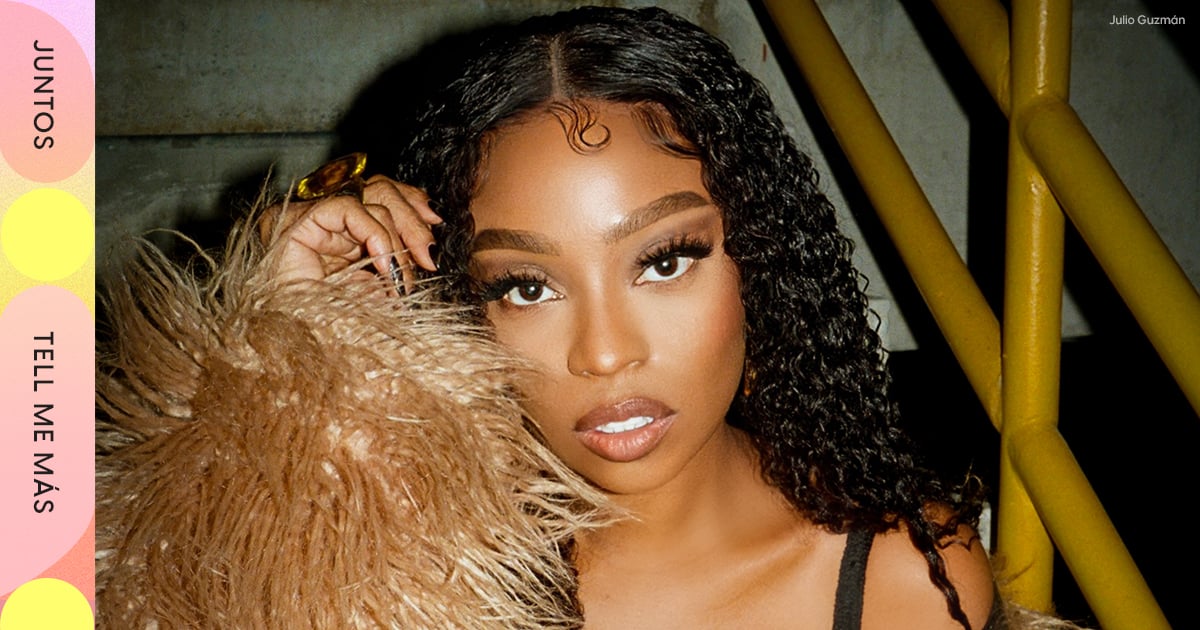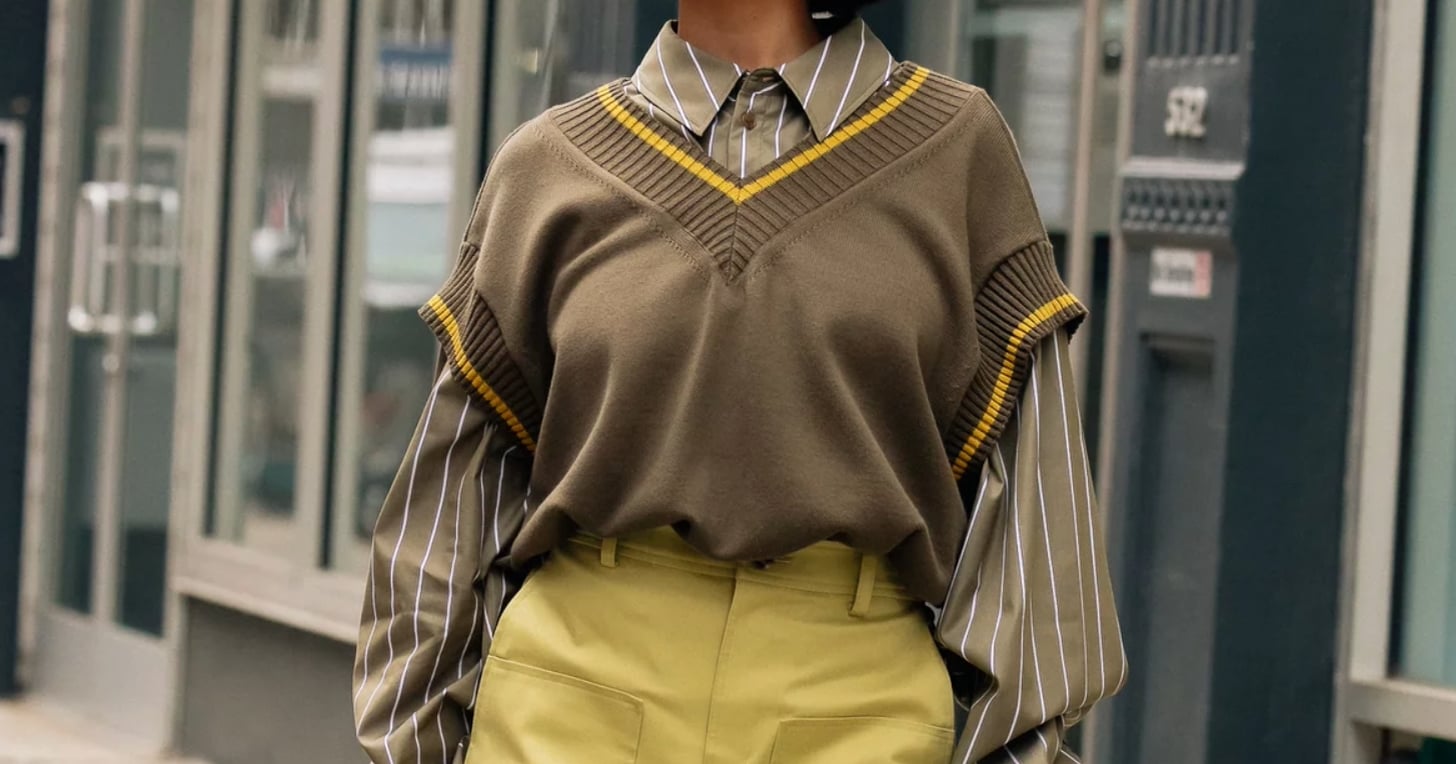In our Q&A /feature series Tell Me Más, we ask some of our favorite Latine artists to share some inside info about their lives and habits, revealing everything from their most recent read to the songs that get them hyped. This month, Grammy-winning artist Goyo, a member of legendary group ChocQuibTown, drops in to talk about her latest turn as a solo act, Afro-Latine representation, and what she’s got in store for us in 2024.
As reggaetón, afrobeats, and trap become global, their distinct sounds and formulas become more cemented. However, rapper and singer Goyo has always defied the confines of a single genre. As a member of the award-winning group ChocQuibTown, the sound that she helped craft along with her brother Miguel “Slow” Martinez and Carlos “Tostao” Valencia, combined elements of traditional African percussion, Colombian folk, hip-hop, dancehall, and reggaetón. Now, as she continues her musical journey, this time as a solo artist, Goyo still finds it difficult to put a label on exactly what her sound is.
“The truth is that it’s difficult for me to classify myself as one single thing . . . I can easily do a song that’s straight hip-hop or a song that’s straight folkloric. It’s part of what I am,” says the artist.
When she first arrived on the scene, it was just as difficult for the industry to classify her and her fellow group members. They won their first Grammy under the rock/alternative category for the song “De Donde Vengo Yo,” as there was no urbano category at that time. But since that time, the genre has exploded allowing young artists from barrios across the globe to chase their dreams and allowing female emcees to show what they are capable of.
Yet, despite this influx of new talent, there is a fluidity and maturity to Goyo’s sound that immediately sets her apart.
“Within the urbano movement, hip hop, rapping, singing, that’s where I feel most comfortable,” she tells POPSUGAR.
For long-time fans of ChocQuibTown, this should come as no surprise, as Goyo’s talent for melodic hooks and precise lyricism has been evident since ChocQuibTown’s debut album “Somos Pacifico” in 2006. However, now that the spotlight is solely focused on her, she’s able to fully embrace her versatility, crafting songs and exploring concepts that highlight a more personal journey.
“With ChocQuibTown, what we wanted to do was put Chocó on the map, to vindicate our culture, and in some way say that ‘hey, we’re here.’ We’re representing our hood.”
“With ChocQuibTown, what we wanted to do was put Chocó on the map, to vindicate our culture, and in some way say that ‘hey, we’re here.’ We’re representing our hood,” Goyo shares. “The difference now [as a soloist] is the experience, everything that I’ve lived, showing everything that I am as a versatile woman.”
It’s a journey that has many parallels with a certain hip-hop legend and one of Goyo’s idols: Ms. Lauryn Hill. Both were the sole female members of powerhouse rap groups. Both burst onto the scene to immediate acclaim and not only could harmonize and provide R&B elements to compliment their male group members’ raps, but they were also powerhouse spitters in their own right. The similarities aren’t lost on Goyo as she admits to looking to Ms. Hill, not only as a source of inspiration but a teacher of sorts, helping her build confidence as a young emcee.
“For me, she’s a teacher in the way that [listening to her music] was able to rid me of a lot of fear and allow me to be myself when it came time to write [my verses],” Goyo says.
Along with Hill, Goyo mentions Foxy Brown, and Rah Digga as major influences. On the Latin side of things, artists like Tego Calderon, Celia Cruz, and Grupo Niche have all had a tremendous impact on her.
“I grew up surrounded by music, my mother and my aunts always singing in the house. So while I was growing up influences would always come to me from all different sides,” she recalls.
These different sides were something she got to showcase in the HBO special, “En Letra de Otro,” where she put her spin on classic songs like Don Omar’s “Otra Noche” and Tito Puente’s “Oye Como Va.” But don’t get it twisted, these weren’t just Goyo’s interpretations of classics. She truly made them her own, rearranging them with completely original lyrics and beats.
Now, she’s ready to follow up that project with a new album of all original tracks. And if the first two singles are anything to go by, Goyo is using the deep waters of the urbano genre as her playground.
“Tumbao” gives reggaetón de la vieja vibes with its simple dembow and traditional percussion elements. Insomnia on the other hand is a complete 180. Produced by hip-hop producer IllMind, it starts with a heavy rock riff before leading into some snappy snare drums and driving a Jersey-style bassline over which Goyo flows between a melodic chorus and more pointed raps with ease.
“Within the creative process, it’s important to have a concept, a beginning, and an end,” she says.”But in rap, sometimes you’ll have a punchline that doesn’t have anything to do with the concept but you can make it connect with the next verse. It’s a beautiful game and it’s the thing I most enjoy, that it’s not rigid. That I can start a song melodically and when I get bored, switch to rapping.”
But despite the growth that she’s undergone and despite her career entering a new chapter, Goyo affirms that she’s still the Goyo her fans were introduced to back in 2006. And as an Afro-Colombiana in a genre that, despite its Afro-Latine origins, has become increasingly whitened, she understands that the representation that she’s championed ever since her ensemble days is just as important now as it was in the earlier days of her career.
“I think that the process [by which Afro-Latines find success] is a process that takes time, that maybe in my generation, I won’t see as many changes as the next generation will, but [the work is being done],” she says.”And the important thing is that we are conscious of that work . . . that we understand where we come from and take beauty from that … so that we can keep advancing and make the load lighter for [future generations].”
When it comes to lightening the load, Goyo has played a significant role since stepping onto the world stage. Not only did she help put the historically Black neighborhood of Chocó on the map, but her continued success helped to make room and provide a blueprint for the next generation of Afro-Latine artists, showing them that commercial and critical success is possible while still staying true to your sound and where you come from.
Yet, for an artist who has already achieved so much and stands as an inspiration to her people, Goyo wants her fans to know that she’s still got more to achieve at this stage of her career and is looking forward to bringing them along for the ride.
“We’re putting a lot of love into the album, “La Pantera,” and I hope that the fans like it and connect with [it] . . . ,” she says. “Something I’ve always wanted to achieve is to have a solo album – to perform, to tour as a soloist and reconnect with the fans who have followed us and also to find along this new route more people to accompany me in the process. Now, I’m able to materialize that dream.”
Now that we’ve got you hyped for Goyo’s upcoming project, keep reading to get the deets on who she’d like to collaborate with, what she’d be doing if she wasn’t rapping, and what she does cuando la insomnia se la pega.
POPSUGAR: Where is your happy place?
Goyo: Wherever my family is.
POPSUGAR: What song would you play to get the party started?
Goyo: Blessings (Remix) by Victor Thompson.
POPSUGAR: What do you do when you can’t sleep?
Goyo: Write. Read.
POPSUGAR: Who’s your most listened to artist right now?
Goyo: Fridayy. I’m crazy about Fridayy
POPSUGAR: Which artists would you like to collaborate with in the future?
Goyo: Don Omar. Tego Calderon. And Eladio. He goes super hard.
POPSUGAR: If it wasn’t music, what passion would you dedicate yourself to?
Goyo: Writing.
POPSUGAR: What was the best thing about being in a music group?
Goyo: Being the only woman.
POPSUGAR: What was the most difficult thing?
Goyo: Being the only woman.
POPSUGAR: Finally, how would you define the word “Tumbao”?
Goyo: Tumbao is that special something that I have and that you have but is different for everyone.


